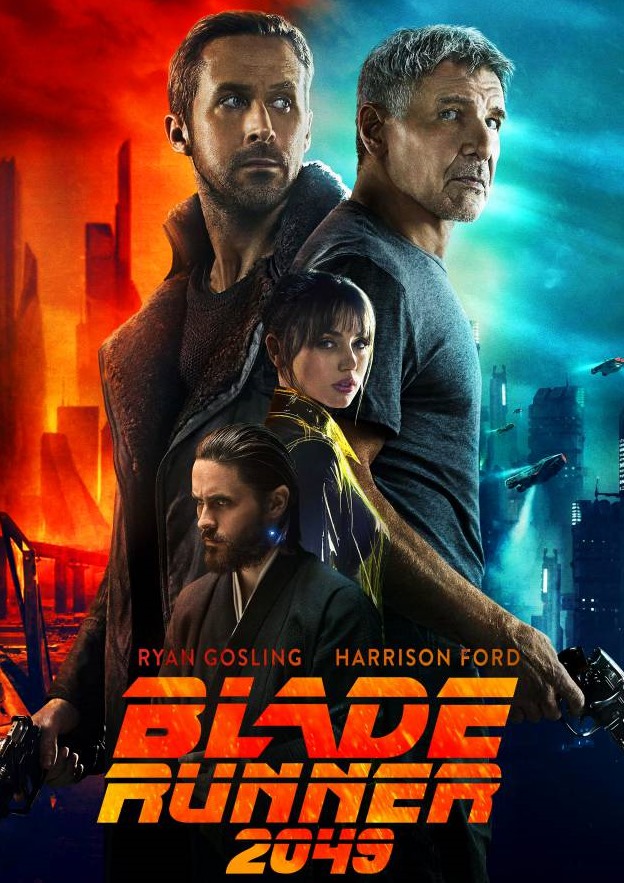Just came back from watching Blade Runner 2049. It’s a pretty intense movie, not for everybody, but I loved it. Not because I’m a big fan of the original (which was good too, but it was just another good movie for me), and certainly not because of the incredibly slow pace of the movie, but because it touches on so many themes that resonate in the world we live in today.

The original movie explored the ideas about what it means to be human, and whether an artificial creation can feel love. Blade Runner 2049 jumps right in and says “yes”, because within the first twenty minutes of the movie it establishes Ryan Gosling’s Officer K as a replicant, yet he has what seems to be a very real emotional connection to another character in the movie. What is even more startling is that his love interest is even more “digital” than even a replicant – she is an AI construct, projected into the real world via holographic technology. The movie goes to great lengths throughout to “humanize” her, and to show that K does, for all intents and purposes, “love” her very much. She, for her part, “loves” him back, though it is unclear how much of that is “real” and how much is part of her programming, since she is presumably a companionship product, created to simulate the experience of having a real female companion. It does spark some interesting questions about love and freedom and even humanity itself. I won’t go into too much philosophical debate about those themes; the internet abounds with articles about them, and here is an example of a good one:
Blade Runner 2049 review in Vox
What I want to talk about is how one part of the movie jumped out at me (no, it wasn’t the huge holograms) – in one scene, a bunch of hookers are instructed to get close to K in order to learn more about what he’s after. One of them, after realising from an audio cue that K owns a companionship product, states that he is one of those guys who prefers virtual women to real ones. It is a profound social commentary, that suggests in a world where we are increasingly attached to our electronic devices and connected to the virtual world rather than the physical one around us, it may come to pass that humans will one day shun relationships with other humans, in favour of custom-made AI that we can tweak to suit us as we desire. Want a girl that is sweet and yet strong? Put that into the shopping list. Want her to be child-like and playful at times, but mature and thoughtful at others? Tick the right options in the menu. Want her to have a great voice and a lovely smile? Adjust the sliders accordingly. Finally, when you’re satisfied, hit “checkout” and pay, and she’s ready to download.
That will never happen, we say. That’s just a far-fetched reaction of people who are ignorant and afraid of technological advancement. That’s just the kind of thinking of 21st century Luddites. Is it? It’s already happening, whether we choose to acknowledge it or not. Blade Runner isn’t suggesting something novel in a possible future society – it’s commenting on something that is already here, and growing. Already, teenagers are more hooked than ever to computer games and virtual worlds. Social media is incredibly addictive, and the modern teenager’s self-esteem is becoming dangerously intertwined with the virtual world and online “friends”, rather than the people that are actually in the physical world around the teen, including family, neighbours and classmates.
Why is this so? The answer is simple – human relationships are messy, complicated, and tiring. Who hasn’t been bullied in school, or seen someone being bullied? Who hasn’t experienced betrayal, or seen it in action? Who hasn’t felt the exhilaration of a new love interest, coupled with painful lows that come with it, all in an exhausting roller-coaster ride of emotions? Who hasn’t had to face rejection, or criticism, or the failure to meet the expectations of others?
What if we could avoid this entirely? What if we could have friends that would never judge us, never criticise us, never leave us. What if we could have a girlfriend who would be there whenever we wanted company, but would not grumble if we wanted time alone to watch football, play Battlefront on the computer, or build a Lego Millenium Falcon? How tempting that would be, especially the closer we get to simulating reality with these artificial intelligence products. Yes, most of us would still crave authenticity. But more and more of us would also someday take the easy way out – to skip the effort and pain of maintaining relationships with real humans, and to just surround ourselves with digital personalities, as many as we want.
It’s a scary thought, one brought vividly to life on the big screen by Blade Runner 2049. But it’s something we should talk about and think about seriously, before we one day wake up and find an entire planet of people completely alone, organic islands in a sea of electrons and pixels.
